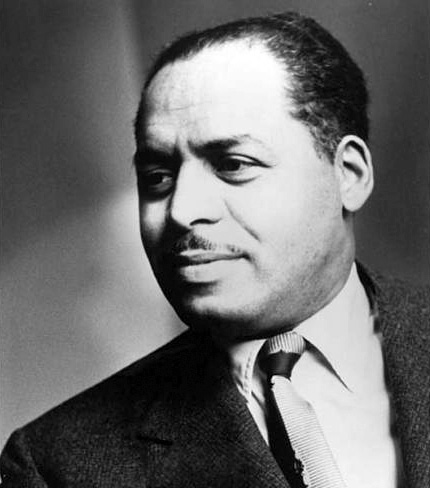Historian, political activist, and educator Clarence Albert Bacote was born on February 24, 1906, in Kansas City, Missouri. His parents were Samuel William Bacote from Society Hill, South Carolina, a graduate of Richmond Theological Seminary (now Virginia Union University) and pastor at Second Baptist Church in Kansas City, and Lucy Bledsoe Bacote, a pianist and choral director from Topeka, Kansas. They had six children, four boys and two girls: Samuel, Clarence, Geraldine, Melba, Wendell, and Ernest.
Bacote attended the segregated Crispus Attucks High School in Kansas City, and he received the Bachelor of Arts degree in history from the University of Kansas in 1926. In addition, he received a Master of Arts degree in history in 1929 from the University of Chicago. In 1931 Bacote and Lucia Moore from Atlanta, Georgia, married in Kansas City and became the parents of two children, Lucia and James. He returned to the University of Chicago in 1952 and earned the Doctor of Philosophy degree in history in 1955.
Bacote, who specialized in the Reconstruction Period, began teaching at Atlanta University (now Clark Atlanta University) in 1930. During his tenure and the early years of the Civil Rights Movement in Atlanta, he was the first director of the citizenship schools of the Atlanta Branch of the National Association for the Advancement of Colored People (NAACP) in 1933.
Bacote and W.E.B. Du Bois were close friends during this period. In 1941 when The Southern Historical Association (SHA) had its historical meeting, Du Bois and Bacote were asked not to attend the conference luncheon because the Association leadership did not wish to be seen with the two progressive Black scholars. They were instead invited to the Biltmore Hotel for tea with other Association leaders. Ironically, the leaders ended up at Du Bois’ faculty apartment in the Ware Hall Dormitory, Atlanta University, where they discussed strategies to end segregation in the city.
In 1952, Bacote was elected vice president of the Fulton County Democratic Club. Six years later, in 1958, he was one of the first African Americans elected to the Fulton County Democratic Executive Committee. He was later appointed to the Georgia State Advisory Committee to the U.S. Commission on Civil Rights in 1962 and served on the Fulton County Jury Commission.
A distinguished researcher, Bacote’s writings have appeared in peer-reviewed journals including the Journal of Negro History, Journal of Southern History, and Phylon. His book The Story of Atlanta University: A Century of Service, 1865-1965 was published in 1969.
Bacote dedicated much of his life to both his scholarship and his efforts to encourage Blacks in Atlanta to vote. He was an authority on Georgia’s political history but equally important, he led campaigns that registered thousands of African American voters in the 1940s and 1950s, paving the way for the wave of Black elected officials like Maynard Jackson Jr. and Andrew Young who emerged two decades later.
Bacote retired from Atlanta University in 1977 and was immediately offered a faculty position in the History Department at Morehouse College. He taught there until his death. Dr. Clarence A. Bacote died in Atlanta, Georgia, on May 1, 1981, at the age of 75.

